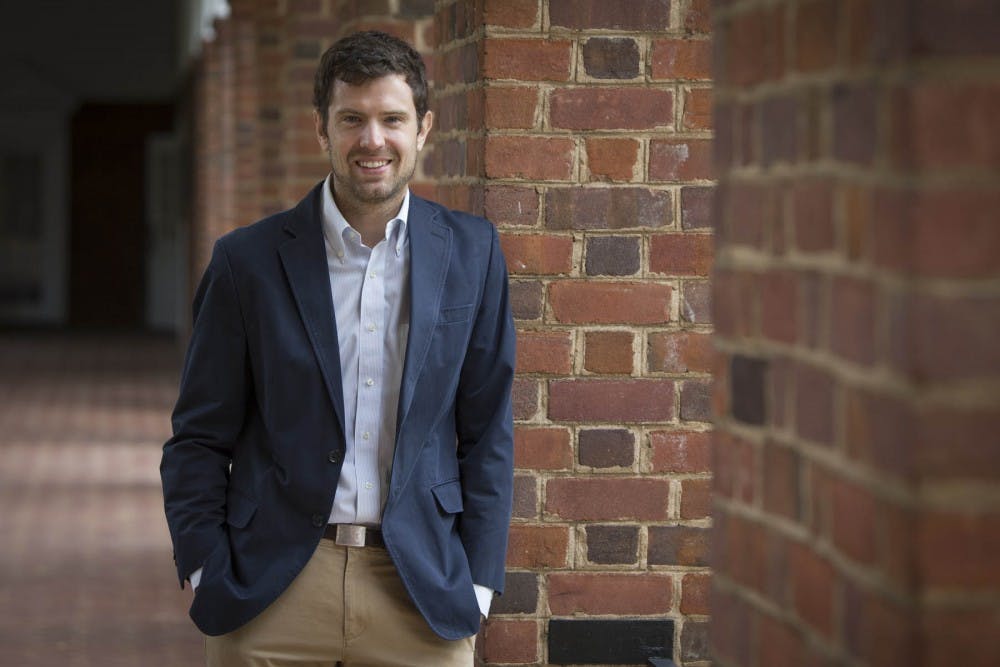Scientists from universities throughout the commonwealth recently signed a letter addressed to Gov. Terry McAuliffe, requesting political action to counteract human-induced climate change.
The letter, signed by 15 professors from five Virginia universities — Virginia Tech, Virginia Commonwealth University, George Mason University, Old Dominion University and the University of Virginia — enumerates possible effects of climate change in Virginia.
According to the letter, “The impacts in Virginia include rising sea levels (perhaps three feet or more by 2,100), ocean acidification that adversely affects fisheries, increases in the heaviest rainfalls, more weather extremes, more frequent and severe droughts, and potentially more intense hurricanes and intensified tornado patterns.”
Virginia’s “diverse economy and proximity to the coast” make the state more vulnerable to climate change, the letter reads. Without due action, the signatories said the Virginia economy faces further damage to its laborers and infrastructure from hardships such as heat stroke, drought, flooding and vector-borne diseases.
Scientists asked McAuliffe to address these concerns in his political agenda by following the Environmental Protection Agency’s Clean Power Plan, a federal plan to reduce U.S. greenhouse gas emissions.
“The undersigned are able and willing to meet with you — to provide current and accurate information so that informed decisions can be made,” the letter reads. “Only with accurate information can your office, and the commonwealth, chart a wise path in the coming years and decades.”
In a statement Friday, McAuliffe agreed with scientists on the importance of reducing carbon emissions and in turn creating jobs and conserving energy.
“I look forward to working with Virginia’s business community, our environmental partners and the EPA to reduce carbon emissions, fight global warming and open a new chapter of economic growth for our commonwealth,” McAuliffe said in the statement.
The Virginia Department of Environmental Quality accordingly submitted comments to the Environmental Protection Agency, hoping to improve the Proposed Emission Guidelines.
“We are concerned that the [Proposed Emission Guidelines] fall short of the requirements of the Clean Air Act in several important respects,” VDEQ said in a letter to the EPA. “These comments are submitted with the aim of assuring that the final rule is equitable, recognizes the great strides made by Virginia and other states in reducing CO2 emissions and survives judicial challenge.”
Among the six signers is University Environmental Science Prof. Howard Epstein. Epstein said scientists hope the information gathered will influence the government to take actions to prevent Virginia from environmental harm.
Due to common public misconceptions, climate change is especially important, Epstein said.
“[People who deny climate change is happening] have done such an effective job convincing the public that this is not an issue,” Epstein said. “Climate change is something that scientists, for the most part, all know is happening.”
The letter maintains that political action will curtail the consequences of climate change and revitalize Virginia’s economy.
“With peril comes opportunity: by reducing greenhouse gas emissions, you [Governor McAuliffe] can create jobs, diversify our energy supply and revitalize our state’s flagging economy,” the letter says.
If current efficiency and renewable goals were realized, Virginia would meet the EPA’s Clean Power Plan.
“Transforming the state’s economy while also being a national leader in clean energy and energy-efficient technology is already within reach,” the letter says.
The letter was proposed and organized by John Abraham, co-founder of Climate Science Rapid Response, a group of 150 scientists working with the media and political legislators to present climate information to the public.
Epstein said there is a “fine line” between conducting accurate scientific investigations and conveying this information to the public.
“I have an agenda as a scientist that potentially has an influence on my credibility,” Epstein said. “[However,] climate change is so well-supported by data that I don’t feel like I’m going out on a limb in advocating for it.”







